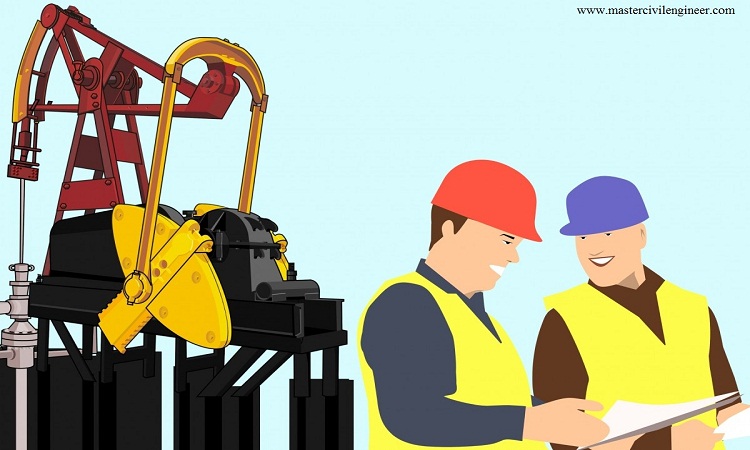Construction inspection is usually carried out as a contractual responsibility performed by the contractor to provide the client or a third party an independent view of the construction works and their progress. The usual construction inspection includes the following activity:
- Inspection of the construction process to make sure that all material and procedures comply with the plan and specifications.
- Inspection and documentation of all contractor activities
- Reporting of daily on-site inspections
- Detailed inspections of the quality of installations if they comply with standards and specifications
- Scrutinizing drawings and specifications and discussing deviations and non-conformities
- Keeping and maintaining inspection checklist and records in a complete, accurate, and orderly manner
- Participation in project meetings
- Monitoring the contractor’s schedule
- Inspections of paints and coatings
- Field testing and materials sampling of soil, concrete, and asphalt, etc.
- Review and completion of change orders
- Monitoring and documenting materials delivered and used in the construction works
- Performing semi-final and final inspection upon building completion
- Preparation of punch lists and monitoring of completion works
- Handover inspection for smooth project close-out

Health and Safety
Construction site inspections are also necessary to ensure compliance with health and safety and construction design and management regulations. These can be internal inspections carried out by the third party audits, contractor, or external inspections by the Health and Safety Executive.
The construction design and management (CDM) regulations themselves only specifically mention inspection in relation to cofferdams, and caisson, excavations, and any work equipment and materials which affect their safety, however other health and safety inspections may be necessary for relation to:
- Prevention of falls and personal fall protection systems.
- Work at Height.
- Work platforms such as scaffold and mobile platforms.
- Ladders and stepladders
- Personal protection equipment, including head protection.
- Plant, vehicles, and other equipment.
- Storage
- Electrical system.
- Asbestos risk
- Provision of welfare facilities such as toilets and handwashing facilities.
- Site conditions and orders.
- Avoidance of obstructions.
- Management of respiratory risks.
- Structural stability.
- Prevention of unauthorized access to the site.
It is important that inspection timing and frequency are properly organized, that proper reports are prepared and that action is taken if necessary.
Inspection reports might contain the following information:
- Details of the person making the report.
- Details of the person the inspection was carried out for.
- Location of the inspection.
- Date and time of the inspection.
- Description of the nature of the inspection.
- Details of the health and safety risks identified.
- Details of any action taken.
- Details of any further action required.
Quality and Progress
The inspection of the construction works will be carried out as they proceed to verify compliance with the requirements of the contract documents.
The site inspector or clerk of works may be provided as an additional service by the existing consultant team or could be new appointments. They may be based on-site permanently or may take regular visits. On large projects, it may be appropriate to have separate site inspectors for electrical and mechanical services, structural works, and architectural works. Specialist inspections may also be necessary for specified aspects of the project such as; the client’s environmental policy, site waste management plan, accessibility, and so on.
Site inspectors provide an independent assessment of the works and will usually report to the contract administrator. They are likely to attend construction progress meetings, keep a site diary, and to produce regular written reports.
Traditionally on the larger projects, a clerk of works was appointed to be the eyes and ears of the consultants and be resident on construction site. They had been issued by the architect or the contact administrator.
The site inspector for more information is as below:
Specific inspections or scrutiny may also be carried out during the construction phase as part of the general contract administration process:
- Condition surveys of neighboring structures prior to commencement of the works.
- Regular valuation inspections to assess the progress of the works in order to value interim payments.
- Inspecting mock-ups and samples and witnessing tests.
- Witnessing commissioning.
- An inspection prior to certification of practical completion.
- Inspection after the handover of the site to the client on certification of practical completion.
- Inspection at the end of the defects responsibility period to prepare a schedule of defects.
- Inspection on completion of the rectification of defects set out on the schedule of defects.
Design consultants generally have a responsibility or liability to provide periodic inspection under the terms of their conditions of engagement. However, the fact that it is periodic, and inspection not supervision, can relive them of liability for specific workmanship defects that result in court action.
Building Control
Building control inspections are required to verify compliance with the building regulations. These can be carried out by the local authority building control inspector or by an approved inspector. Building control inspections are generally required in the following key stages of projects:
- Excavations before filling
- Foundations before covering up
- Damp proof course
- New drains before covering up
- Ground beams and steelwork
- Insulation
- Roof construction
- Completion
Other
There are other construction inspections is as below:
- Planning in inspections to substantiate compliance with planning permissions, conditions, and obligations
- Inspection for release of funding by applicable agencies
- Insurance inspections
- Routine inspections of street work by highway authorities for road and sewer construction types
- Environment inspections related to polluting and installations like kitchens and drains
- Fire safety inspection for fire escapes, protection systems, hazards, and storage of certain materials
- Factory inspections
- Archeological inspection of excavation

